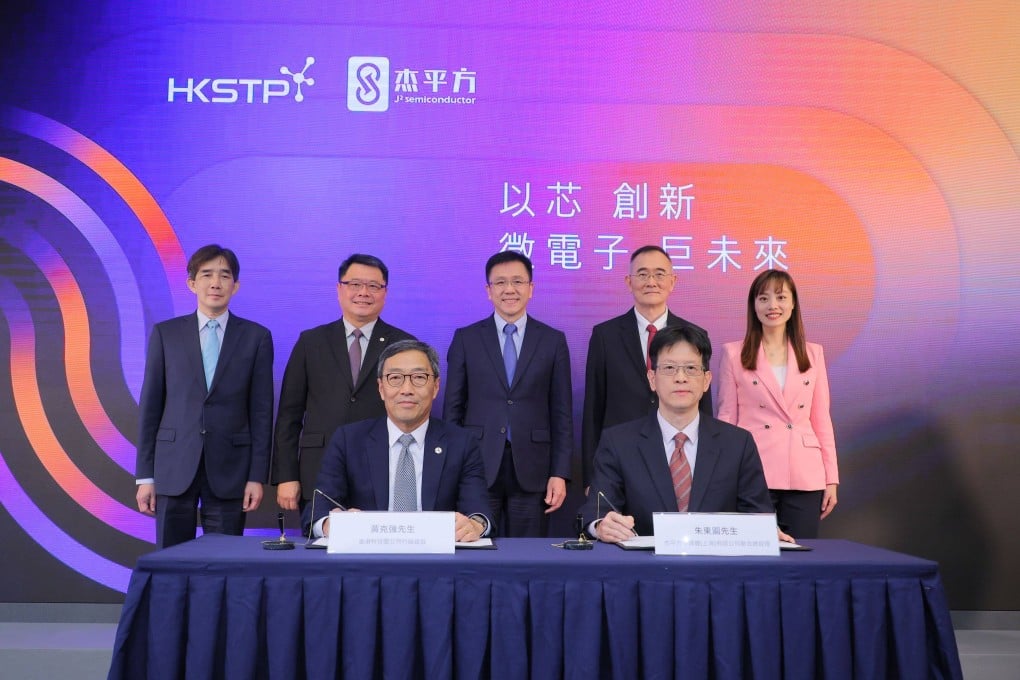HKSTP supercharges Hong Kong’s new-industrialisation mission with key microelectronics partnerships
- Microelectronics enterprise J2 Semiconductor and new-energy vehicle maker Neta Auto choose Hong Kong Science Park for their R&D centres
- Deals highlight Hong Kong’s edge in microelectronics and boost its status as an international innovation and technology hub

[The content of this article has been produced by our advertising partner.]
Hong Kong Science and Technology Parks Corporation (HKSTP) has recently formed two landmark partnerships. One is with mainland China’s microelectronics enterprise J2 Semiconductor, and the other with leading new-energy vehicle (NEV) maker Neta Auto. Together they further strengthen the global status of Hong Kong’s microelectronics and NEV sector.
With support from Hong Kong’s Innovation, Technology and Industry Bureau (ITIB) and the Office for Attracting Strategic Enterprises (OASES), HKSTP has sealed deals with these two partners, fully establishing Hong Kong as an innovation and technology (I&T) hub in the region.
According to J2 Semiconductor, the company has agreed to set up a global research and development (R&D) centre focusing on third-generation semiconductors at Hong Kong Science Park, and to establish Hong Kong’s first facility to develop silicon carbide (SiC) 8-inch advanced wafer fabrication – a material used in power semiconductor devices.
Dr Robert Tsu, chairman of J2 Semiconductor, says an estimated HK$6.9 billion (US$882 million) will be invested in the project, with plans to start volume production within the next two years, reaching an annual production capacity of 240,000 SiC wafers by 2028. This is expected to generate an annual production value of more than HK$11 billion (US$1.4 billion) and create over 700 jobs in Hong Kong.
“The project will assist in the early completion of the localisation of the new-energy vehicle supply chain and drive the long-term development of the semiconductor industry in Hong Kong,” Tsu says.